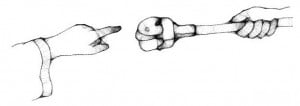Esther and Mordecai – Teaching Plan
Key Thought : God still calls on men and women to be available as His representatives in promoting life and the values of the kingdom of heaven.
1. Have a volunteer read Esther 1:19-21.

Image © Lars Justinen Goosalt.com
a. Ask class members to share a thought on what the most important point in this text is.
b. What issues were at stake for both Vashti and the king in this situation?
c. Personal Application: Have you ever stood up for the moral right and been punished or ridiculed for it? How did it feel? Share your thoughts.
d. Case Study: One of your relatives states: “It’s obvious God let this scenario play out so Esther would be in a position to save her people from annihilation, but why did God allow these heathen people to treat each other and God’s people badly?” How would you respond to your relative?
2. Have a volunteer read Esther 3:8-13.
a. Ask class members to share a short thought on what the most important point is in this passage.
b. Because of the threat of persecution or ridicule, should we hide our religion or beliefs at any time?
c. Personal Application: Do we tend to look down on others because their lifestyle or culture is different from ours? What are some of the problems that we may face by accepting cultural or lifestyle differences that undermine our Christian heritage?” Share your thoughts.
d. Case Study: One of your friends states, “How are we supposed to respond to those who want us imprisoned or killed? Should we take up arms and fight, or are we to simply trust God to protect us or let us die for our faith?” How would you respond to your neighbor?
3. Have a volunteer read Esther 6:1-3.
a. Ask class members to share a short thought on what the main idea of this text is.
b. What motives or ideals might Mordecai have had that led him to warn a heathen king that someone was planning to kill him?
c. Personal Application: In what ways do we see the hand of God guiding in our lives? Share your thoughts..
d. Case Study: One of your neighbors states, “If someone was going to kill the mayor, governor, or president; and I found out about it, I certainly wouldn’t say anything to anyone about it. Why get involved? You’ll just get someone angry at you – and the others won’t appreciate it. You’d just be labeled a snitch.” How would you respond to your friend?
4. Have a volunteer read Esther 8:13-17
a. Ask class members to share a short thought on what the main idea of this text is.
b. Why is it important that whatever we do, it has to be done in such a way that no one will question our motives?
c. Personal Application: How can our personal witness be so strong that many in our land will join us? Share your thoughts.
d. Case Study: Think of one person who needs to hear a message from this week’s lesson. Tell the class what you plan to do this week to share with them.
(Note : “Truth that is not lived, that is not imparted, loses its life-giving power, its healing virtue. Its blessings can be retained only as it is shared.” Ministry of Healing, p. 148)
